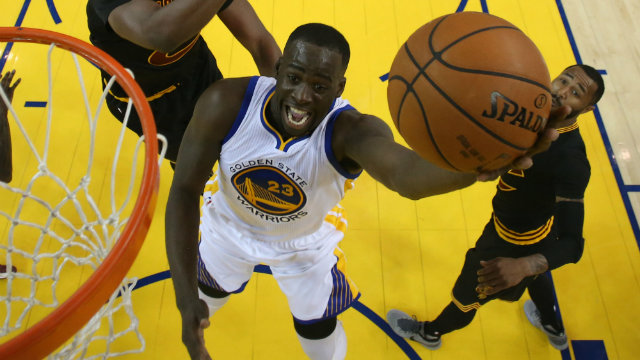
Green fueled the Warriors across the last decade as Golden State redefined the sport. Betting against his shortcomings still feels as foolish now as it did more than a half decade ago, when Golden State rose from an NBA laughingstock to a dynasty. He’s a frontcourt hybrid with no analogues across history, pairing the defensive excellence of Dennis Rodman and Ben Wallace with the skills of “a distributor and a passer and kind of a point center,” according to Kerr. Yet the beauty of Green’s game lies far outside his physical limitations. A 32-point game in the Finals is out of the question, and his previously modest burst around the rim has even taken a hit. This isn’t 2015 or ’16 anymore for Green.
Draymond green stats free#
But his passivity is tipping off the Grizzlies, who are free to overplay passing lanes without retribution.
Draymond green stats driver#
Green doesn’t need to be a third Splash Brother or even a driver that demands help defense. He’s passed up numerous attempts at the rim for unnecessary kickouts, with layups and floaters standing as almost last-ditch options. Green has attempted just 13 shots across four games, and he is a whopping 0-for-1 from three in the series.
Draymond green stats series#
Jokić was ejected after a second technical during a blowout Game 2 loss, and his scoring totals across the series came at a far less efficient clip than usual. Yet the impressive output omits the well of frustration caused by Green for much of the series. five games), and his effort came alongside a supporting cast that Nuggets coach Mike Malone compared to a Ford Pinto. He’s now the only player this century to average 31 points, 13 rebounds and five assists in a postseason (min. Jokić turned in his usual brilliant production against Green and the Warriors at first glance. With Jokić on the other end, Green was forced to focus on a singular assignment. He wasn’t afforded such a luxury in Round 1. He’s at his most destructive when allowed to roam as a center fielder, wreaking havoc as a help defender as he pays scant attention to the weak link on an opposing offense. The first nine games of Golden State’s playoff run illustrate Green’s versatility. As modern offenses reduce most defenders to specialists in a scheme, Green stands as the league’s most adaptable chess piece. He doesn’t bark signals as a back-line anchor as Green does. Leonard is perhaps the best ball-hawking wing in league history. Gobert, valiantly as he may try, can’t dance on the perimeter like Green.


And while both of the aforementioned defenders will have their own Hall of Fame busts one day, Green is perhaps the more versatile player. He sports six All-Defense selections and one Defensive Player of the Year Award, with multiple top-three finishes behind multitime winners Rudy Gobert and Kawhi Leonard. Green’s defensive prowess will power his candidacy to Springfield sometime around the end of this decade. But behind the triples, a steady engine remained: Green controlling the action on the ends, serving as arguably the greatest Swiss Army knife in league history. The Warriors’ dominance over the sport across the last decade will largely be remembered for Steph Curry’s rainbow threes and Klay Thompson’s magical 41-point night in Oklahoma City. Of Golden State’s 10 best three-man lineups this postseason (min. He’s fourth among rotation players this postseason at +15.

Green finished third among all players with a +12.5 net rating in the 2015 playoffs. Green’s playoff dominance is metronomic, with his performance seemingly unimpacted by opponent, lineup or age. His play fuels winning basketball like few in recent memory. But Green’s significant edge over the century’s best players is illustrative. Totaling plus-minus over an extended stretch is an imperfect measure, one that doesn’t perfectly capture individual performance. Tim Duncan checks in at a plus-501 in the 3,925 minutes comprising his best six-year playoff run (1999–2005) and Shaquille O’Neal posts a plus-590 in postseason minutes from ’00–05. By contrast, LeBron James is plus-633 in 4,318 playoff minutes in that span. Green is a plus-980 in 4,198 playoff minutes dating back to 2015, the year of Golden State’s first title. Perhaps this simple accounting paints a better picture. And, while impressive, the counting stats don’t do Green’s postseason résumé justice. He’s sixth among active players in playoff assists and seventh in win shares. He’s one of 13 players in NBA history to tally 1,500 points, 1,000 rebounds and 750 assists in the postseason, joining a dozen current or future Hall of Famers. Few players in the modern era can match Green’s playoff résumé.


 0 kommentar(er)
0 kommentar(er)
